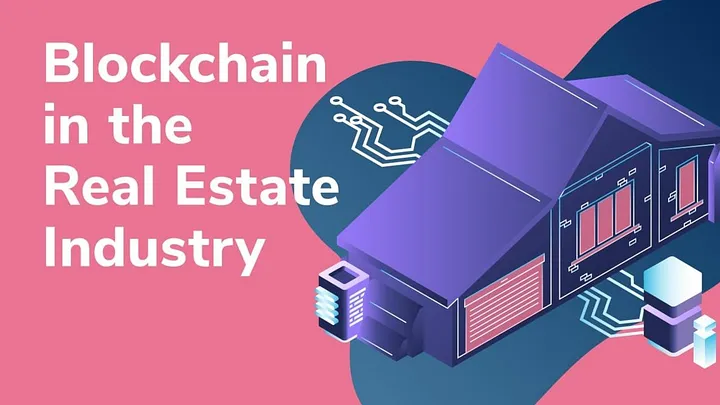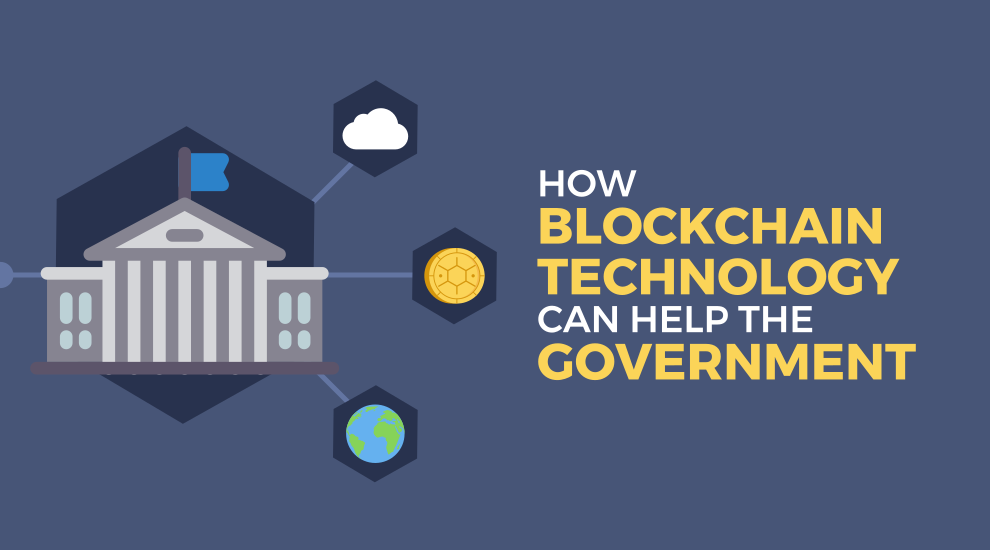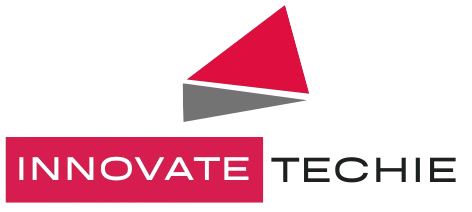Once limited to cryptocurrencies, blockchain technology has developed into a versatile instrument that can revolutionize sectors well outside of finance. Blockchain technology gained international recognition because to Bitcoin and other digital currencies, but distributed ledger technology (DLT) itself has revolutionized a number of industries. Blockchain technology is transforming a variety of industries, including supply chain management and healthcare, by offering efficiency, security, and transparency. We will examine how blockchain is changing several industries in this blog and the reasons why companies should think about implementing this.
Understanding Blockchain Technology: The Foundation of Distributed Ledger Technology

Blockchain is essentially an immutable, decentralized ledger that tracks transactions across several computers connected to a network. Because the network is decentralized and cannot be controlled by a single party, it is extremely safe and impervious to manipulation. Beyond cryptocurrencies, the technology’s primary characteristics—decentralization, transparency, and immutability—make it the perfect choice for a wide range of applications.
Key Blockchain Statistics
- Market Growth: The global blockchain market size was valued at $7.18 billion in 2022 and is projected to reach $163.83 billion by 2029, growing at a CAGR of 56.3% during the forecast period.
- Adoption Rate: As of 2021, 81 of the top 100 publicly traded companies are using blockchain technology in some capacity, either for their use or as part of a consortium.
- Investment: Venture capital investment in blockchain startups reached $33 billion in 2021, marking a 713% increase from the previous year.
Healthcare: Revolutionizing Patient Data Management
The data systems in the healthcare sector are infamous for being disjointed and compartmentalized, which can result in errors, inefficiencies, and higher expenses. By offering a centralized, transparent, safe, and secure platform for exchanging and storing medical records, blockchain technology has the potential to completely transform the management of patient data.

How Blockchain Technology is Transforming Healthcare
- Safe Patient Data: Blockchain makes sure that medical records are kept private and that only authorized individuals have access to them. This lowers the possibility of data breaches, which are a big worry in the medical field. Over 52 million patient details were exposed by 712 healthcare data breaches in 2022 alone.
- Interoperability: The inability of various technologies to communicate with one another is one of the largest problems facing the healthcare industry. Blockchain offers a standardized platform that makes it simple for data to be transferred between various healthcare providers, guaranteeing patients receive care that is seamless.
- Supply Chain Transparency: Using blockchain technology, pharmaceutical supply chains may be tracked to make sure that drugs are genuine and unaltered. According to estimates from the World Health Organization, 1 in 10 medical products in low- and middle-income countries are substandard or falsified.
Supply Chain Management: Enhancing Transparency and Efficiency
Another area where blockchain is having a big impact is the supply chain business. High costs, a lack of transparency, and inefficiency are common problems with traditional supply chains. Blockchain is the perfect answer for supply chain management since it can give an unchangeable, transparent record of transactions.

Blockchain Technology Impact on Supply Chain
- Transparency: From raw materials to the final product, every link in the supply chain can be clearly seen thanks to blockchain technology. The identification of inefficiencies and bottlenecks made possible by this transparency results in a more efficient supply chain.
- Traceability: Every stage of the supply chain may be tracked and linked to its source using blockchain technology. This is especially significant for sectors where product authenticity is critical, such as the food and pharmaceutical industries. Walmart, for instance, tracks food goods’ path from farm to store using blockchain, cutting the time it takes to trace food from seven days to just 2.2 seconds.
- Cost Reduction: Blockchain can drastically cut expenses by doing away with the need for middlemen and lowering the likelihood of fraud.
Finance: Beyond Cryptocurrency
Blockchain technology has enormous potential in the larger financial sector, even though bitcoin is still its most well-known use. Trade financing and international payments are two financial operations that blockchain is being utilized to expedite.

- Cross-Border Payments: Traditionally, cross-border payments include several intermediaries and are frequently costly and sluggish. Blockchain removes the need for middlemen, enabling almost immediate and affordable cross-border transactions. Blockchain technology has the potential to lower cross-border payment transaction costs by 40% to 80%, per a Deloitte analysis.
- Smart Contracts: Self-executing contracts with the terms of the agreement explicitly put into code are made possible by blockchain technology. By lowering the requirement for third-party verification, smart contracts expedite transactions and cut expenses. At a compound annual growth rate (CAGR) of 18.1%, the global smart contracts market is projected to reach $345.4 million by 2026 from $144 million in 2020.
- Trade Finance: Paper-based, slow processes are common in trade finance, which raises costs and causes delays. Blockchain offers a digital trade finance platform that streamlines, increases transparency, and fortifies the process. According to a World Economic Forum report, blockchain technology has the potential to boost global trade by $1 trillion by lowering obstacles in global supply chains.
Real Estate: Revolutionizing Property Transactions
Another business that stands to gain a great deal from blockchain technology is the real estate sector. Blockchain can improve the efficiency, transparency, and security of real estate procedures, including land registry and property transactions.

Blockchain Technology Role in Real Estate
- Property Transactions: By eliminating the need for middlemen like brokers and attorneys, blockchain technology can expedite the property transaction process. This lowers transaction expenses while also expediting the process. Blockchain has the potential to cut real estate transaction costs by as much as 30%, per a Deloitte study.
- Land Registry: Blockchain technology can offer an unchangeable, safe platform for land registry, lowering the possibility of fraud and guaranteeing the accuracy of property information. Blockchain is already being used by nations like Georgia and Sweden for land register, resulting in more efficient and transparent procedures.
- Asset Tokenization: By permitting fractional ownership and streamlining the process for individual real estate investors, blockchain facilitates the tokenization of real estate assets. It is anticipated that the global market for real estate tokenization will expand at a 30% compound annual growth rate from $0.3 billion in 2020 to $1.4 billion by 2026.
Government: Enhancing Transparency and Efficiency
Governments from all across the world are looking into using blockchain technology to increase public service efficiency, decrease corruption, and boost transparency. Blockchain has several uses in the public sector, including identity management and voting systems.

Blockchain Technology in Government Projects
- Voting Systems: By lowering the possibility of fraud and guaranteeing a precise count of every vote, blockchain technology may offer a transparent and safe voting environment. Voting systems based on blockchain have already been adopted in a number of nations, including Estonia.
- Identity management: Blockchain technology can offer a decentralized, safe platform for identity management, lowering the risk of identity theft and facilitating identity management for individuals. Over 1 billion individuals lack a legal identification worldwide, according to the World Bank, and blockchain technology may be able to address this issue.
- Public Services: By offering an unchangeable and transparent transaction record, blockchain technology can increase the effectiveness of public services. This can guarantee that public services are provided more effectively and help lower corruption.
Energy: Decentralizing the Grid
With blockchain technology playing a major part in the democratization of energy production and delivery, the energy sector is undergoing a shift. Blockchain is opening up new economic opportunities in the energy industry, such as peer-to-peer energy trading and green energy certifications.

Blockchain Technology Impact on Energy
- Peer-to-Peer Energy Trading: Using blockchain technology, people can exchange excess energy with neighbors directly and without the use of middlemen. Systems for distributing and producing energy could become more resilient and efficient as a result of this decentralization.
- Renewable Energy Certificates: Accurate recording and trading of renewable energy certificates is ensured by the transparent and secure tracking platform offered by blockchain . This could facilitate businesses in achieving their sustainability objectives, therefore hastening the shift to renewable energy.
- Grid Management: By offering an unchangeable and transparent record of energy generation and consumption, blockchain technology can enhance grid management. This could enhance the effectiveness of energy distribution and lessen the chance of blackouts.
Conclusion: The Future of Blockchain Technology Across Industries
The world of cryptocurrencies is no longer the only application for blockchain technology. With applications spanning from healthcare and supply chain management to finance, real estate, government, and energy, its potential to completely revolutionize industries is becoming more and more evident. Blockchain technology is poised to become a key component of the digital economy as companies and governments continue to investigate and implement it.
Stay ahead with the latest tech trends, tutorials, and innovation at InnovatTechie.co – connect with us for exclusive updates! Get In Touch


1 Comment
I’m really impressed along with your writing abilities as neatly as
with the layout in your weblog. Is that this a paid
subject or did you customize it yourself? Either way stay up the excellent quality writing, it is rare to see a great
weblog like this one today.